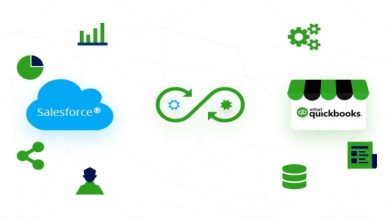Things to consider before opting for Logistics Management Software
Logistics Management Software

Making software decisions in today’s tech-driven world can be a challenging task. The complexity of technology stacks has increased, and logistics companies face the daunting task of choosing the right software for their business needs. The decision-making process is further complicated by the myriad tools available, each offering unique features and capabilities.
However, choosing the right logistics software is crucial for reducing costs, improving customer service, and ensuring efficient operations. In this article, we will explore key factors to consider before opting to use logistic management software and provide insights into common challenges and tips for overcoming them.
Understanding Logistics Management
Logistics management involves the intricate process of planning, implementing, and controlling the movement and storage of goods and services from origin to consumption. It encompasses various aspects such as transportation management, inventory management, warehousing, order processing, and customer service. The primary goal is to optimize the supply chain, ensuring timely and cost-effective delivery to customers.
When executed effectively, logistics management enables businesses to enhance customer satisfaction, reduce costs, and increase profitability. In the fast-paced market, logistics service providers (LSPs) focus on optimizing the supply chain to stay competitive and outpace others.
Logistics Management Software: Types and Benefits
Logistics software, designed to meet specific supply chain needs, manifests in various forms, each delivering targeted solutions. Some common types of Logistics Management Software are:
- Communication Software: Streamlining internal and external collaboration.
- Order Management System (OMS): Efficiently tracking customer orders, managing inventory, and automating fulfillment.
- Transportation Management System (TMS): Optimizing freight movements, tracking shipments, and automating transportation processes.
- Warehouse Management System (WMS): Overseeing inventory, stock movements, and warehouse space optimization.
- Supply Chain Management System (SCM): Managing the entire supply chain from sourcing to delivery.
- Freight Management System (FMS): Handling freight operations, carrier relationships, and freight costs.
These technologies yield benefits like enhanced visibility, cost savings, improved accuracy, increased efficiency, and elevated customer service, making them integral for businesses aiming to thrive in the competitive logistics landscape.
Factors to Consider When Choosing Logistics Software
- Analyze Your Unique Needs
Identify the specific pain points in your logistics operations and determine the key features and capabilities required to address them. Understanding your business’s unique requirements is crucial in selecting software that aligns with your goals.
- Select a Scalable Solution
Choose a logistics software solution that can scale with your business as it grows. Ensure it can accommodate your current needs while providing room for expansion and evolving logistics operations.
- User-Friendly Interface
A user-friendly interface streamlines operations and reduces the time and effort required for tasks. Look for software with an intuitive interface that requires minimal training for users to get started.
- Customization Options
Every business has unique logistics needs. Opt for software that offers customization options to meet specific requirements and adapt to evolving business processes.
- Vendor Support and Reliability
Evaluate vendors based on their track record in providing high-quality software and excellent customer support. Consider their reputation, customer reviews, and response times to ensure reliability.
Factors to Look for in a Logistics Management System
In the era of digital transformation, logistics management systems play a crucial role in automating and optimizing supply chain processes. Here are additional factors to consider:
- Faster Delivery of Goods
Choose a logistics management software that ensures efficiency in delivering goods. It should eliminate delays, missed deadlines, and poor planning, providing a smooth flow throughout the supply chain process.
- Efficient Freight Management
Opt for software that offers quick, efficient, and transparent management of freight costs. The system should identify challenges and provide timely insight into rectification measures while maintaining service quality and delivery timeliness.
- Modular Architecture for Seamless Integration
Select software with a modular architecture to seamlessly integrate with existing logistics systems. This ensures business operations continue without interruptions, allowing for cost-effective adaptation of necessary modules.
- Multilingual Application for Global Operations
Consider whether your logistics business needs a multilingual application to cater to a diverse customer base and facilitate seamless communication across different regions.
- Flexible Billing Options
Look for software that offers multiple billing options and greater flexibility in operations. This includes features like a robust database for storing billing documents and intelligent processing for automated invoice reconciliation.
- Costing and Invoice Processing
Ensure the selected software provides features for intelligent costing and invoicing, including automated invoice reconciliation, seamless auditing with timestamps, and the ability to leave comments on each invoice.
Choosing the right logistics management software requires a thorough understanding of your business’s unique needs, scalability, user-friendliness, customization options, and vendor support.
Additionally, considering factors like faster delivery, efficient freight management, modular architecture, multilingual capabilities, flexible billing options, and advanced costing and invoicing features will contribute to a successful implementation and optimization of your logistics operations.



